Congratulations on nursing, Babe! Hopefully you’re coming to this page to arm yourself with knowledge, and not because you’ve had a bad experience.
Nursing on demand is an important part of breastfeeding, and many moms celebrate the freedom that comes with being able to not carry around feeding supplies and having perfect temperature food ready at all times. Unfortunately, not all people are supportive nor do they quite understand what it’s like to be a nursing mom. If you’ve had a run-in with an employee or manager at an establishment, there are some steps you can take to make sure things stay calm, and have the best chance of being resolved peaceably, and also, that you avoid any misunderstandings.
- Remain calm, and ask questions to clarify the situation such as, “I’m sorry, can you tell me exactly what it is you’re asking me to do and why?” You want to make sure you understand their complaint and request thoroughly.
- Do not make threats. Don’t tell them you’ll have them arrested, charged, that you’ll stage a nurse-in, or anything of that type. This also helps keep the situation calm. If you have your state’s breastfeeding laws on hand, show them to the person challenging your rights.
- Make your complaint known to the establishment. First through the on-site manager, then report it to the corporate office, or customer relations. Call AND send an e-mail. Keep record of when you called, who you spoke with, and what the reaction was every step of the way.
- Grant ample time for an appropriate response. 48 hours during business days, or the following Monday if it occurred on a Friday or over the weekend.
- Share your incident within your mommy groups and friends. Support from other moms will help you to cope. Being harassed, humiliated or discriminated against takes its toll on you, you need a cheering squad!
- If you don’t get a response, take it up the food chain; ask to speak to the corporate officer that oversees all of Customer Services.
- Consult with a lawyer to see if there are any non-breastfeeding related violations to the law that can be prosecuted. For example, if an employee forcefully grabbing your arm in attempt to get you to move.
- After a reasonable time of no response or no apologies from the establishment, begin to determine what course of action should be taken. Contact your State, Regional or Local Breastfeeding Coalition, La Leche League Coordinator, Breastfeeding USA Counselor, or other breastfeeding support groups and ask for their input or advice. They may have had previous experiences with the establishment.
- Consider potential actions, such as sharing your story through Best for Babes, reaching out through social media and traditional media, petitions, protests (including nurse-ins) & demonstrations, and legal action. Do not make a nurse-in protest the first reaction. Contact Michelle AT Bestforbabes DOT org to discuss what course of action would be effective.
- Use social media (Facebook) to gain supporters and share your story. Groups such as Target Nurse-In can be very helpful!
- Get organized, and educate yourself before contacting and/or conducting media interviews. Michelle AT Bestforbabes DOT org can provide you with media talking points and guidance.
If you DO receive an apologetic response from the establishment:
Don’t discount or criticize their efforts to apologize. If the apology seems sarcastic or forced to you, or just isn’t worded very well, still kindly thank them for actually apologizing (some establishments never do), then politely educate them about how they can improve upon their word choice in the future. Apologies are a good thing and we want them, so we do not want to offend apologetic establishments openly or the apologies will stop.
Ask them how they plan to prevent this from happening in the future.
This is key because companies are getting in the habit of apologizing but not making lasting change that will ensure that other mothers are not harassed, humiliated or discriminated against. Again, consult with Michelle Hickman to discuss a plan of action and keep careful track of what was said, by whom, and when.
If you are happy with the apology and feel that the organization is taking adequate steps to prevent future occurrences, consider organizing a thankful demonstration (not a nurse-in protest). A thankful demonstration (similar to the Great Latch On) is where nursing moms, their children, and breastfeeding supporters gather to thank the establishment for being nursing friendly and supportive. Bake them some cookies, give them a nursing friendly establishment plaque to display, spend money shopping or frequenting the establishment, or what ever works for you and your group of moms.
Keep our Best for Babes Director of Activism, Michelle Hickman, informed by reaching out to her at michelle AT @ BestforBabes DOT org.
These guidelines were developed based on my experience as the “Target Mom”, my involvement in the Georgia demonstration, and in talking to other advocates and moms who were discriminated against. Do you have any suggestions? What have you done that worked when harassed for nursing in public?



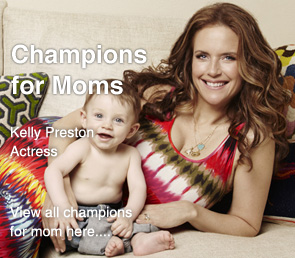


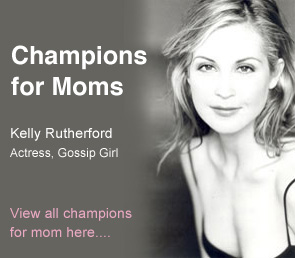
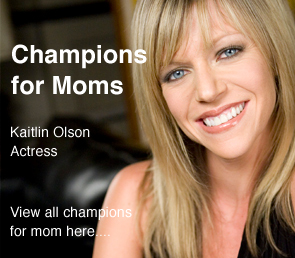
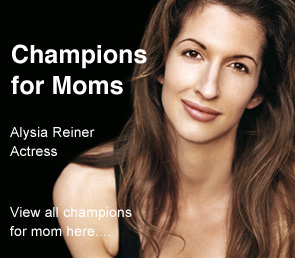

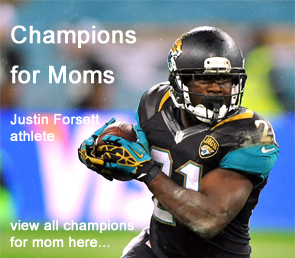

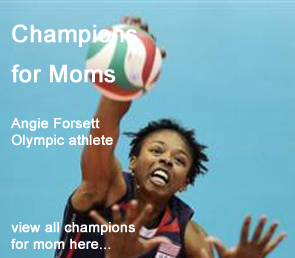
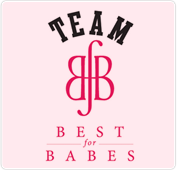

Great advice and information for dealing with harassment in a smart, respectful, yet strong way.
Thank you for posting this!
I would also suggest that we leave emotional space for the chance that the person who did the harrassing of a nursing mother does not represent the corporation’s policies whatsoever. For whatever sad reason, the sight of a nursing mother sets off an alarm in some folks, and they cannot think clearly about policy at that point.
I’ve had great luck writing complaints from the perspective of, “This unfortunate incident happened in your store, and I know that this is not the way you want to treat customers.” It’s hard for them to write you off as hostile this way.
@Cherilyn: That is excellent advice. I am not (yet) a momma. But I have been witness to some pretty hostile reactions to BFing mothers. And vice versa. A letter campain (or e-mails) often works if you’re not getting any response. One customer upset, big deal…a dozen or so? Quick apologies and retraining.
I’m also going to ask this: I know breast is best, but some mothers can’t. Neither can some babies. So mommies please: Don’t judge the woman with the bottle. We all try to do the best for our babes.
Less than 2% of all mothers not physically capable of breastfeeding. There are other reasons such as a communicable disease that will pass through breastmilk like HIV, and there are situations where a mother needs a medication that passes through breastmilk and is harmful to baby (many times there is a safer alternative medication). Doing the best for a baby is just that, doing the best. Not giving up halfway. I understand that breastfeeding is difficult because I have been doing it for 19 months now. I am not criticizing, just saying there is a big difference from doing the best for your child, and knowing what’s best and doing something that is less…Not putting anyone down, my mother formula fed me, just saying that most people say it’s their right to choose how they feed their child, no one ever says it’s the child’s right to have the best possible nutrition and start in life. In some cases breastfeeding is not possible and that should be the only use for formula, or emergencies. I don’t know if you plan to breastfeed or not, but I hope you do. I hope I don’t come off as critical, I am just very passionate about breastfeeding. If you breastfeed, make sure to find support around you!! Good luck and best wishes